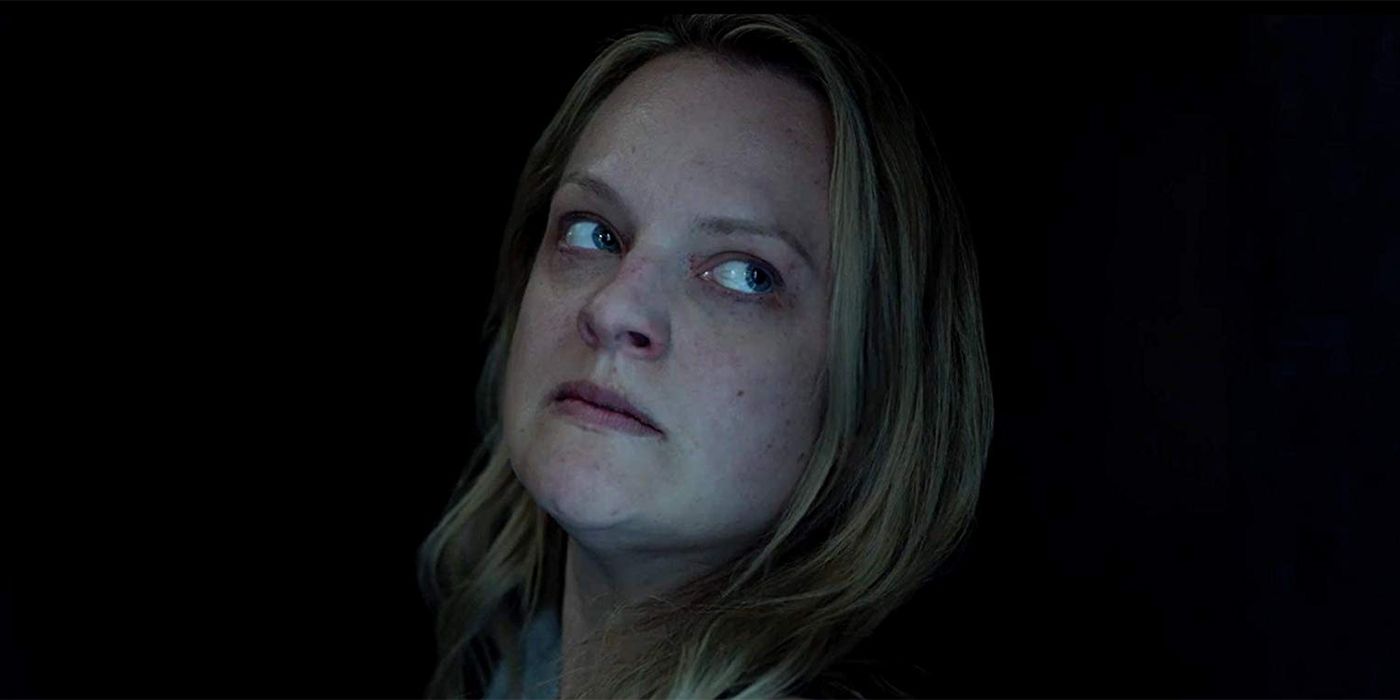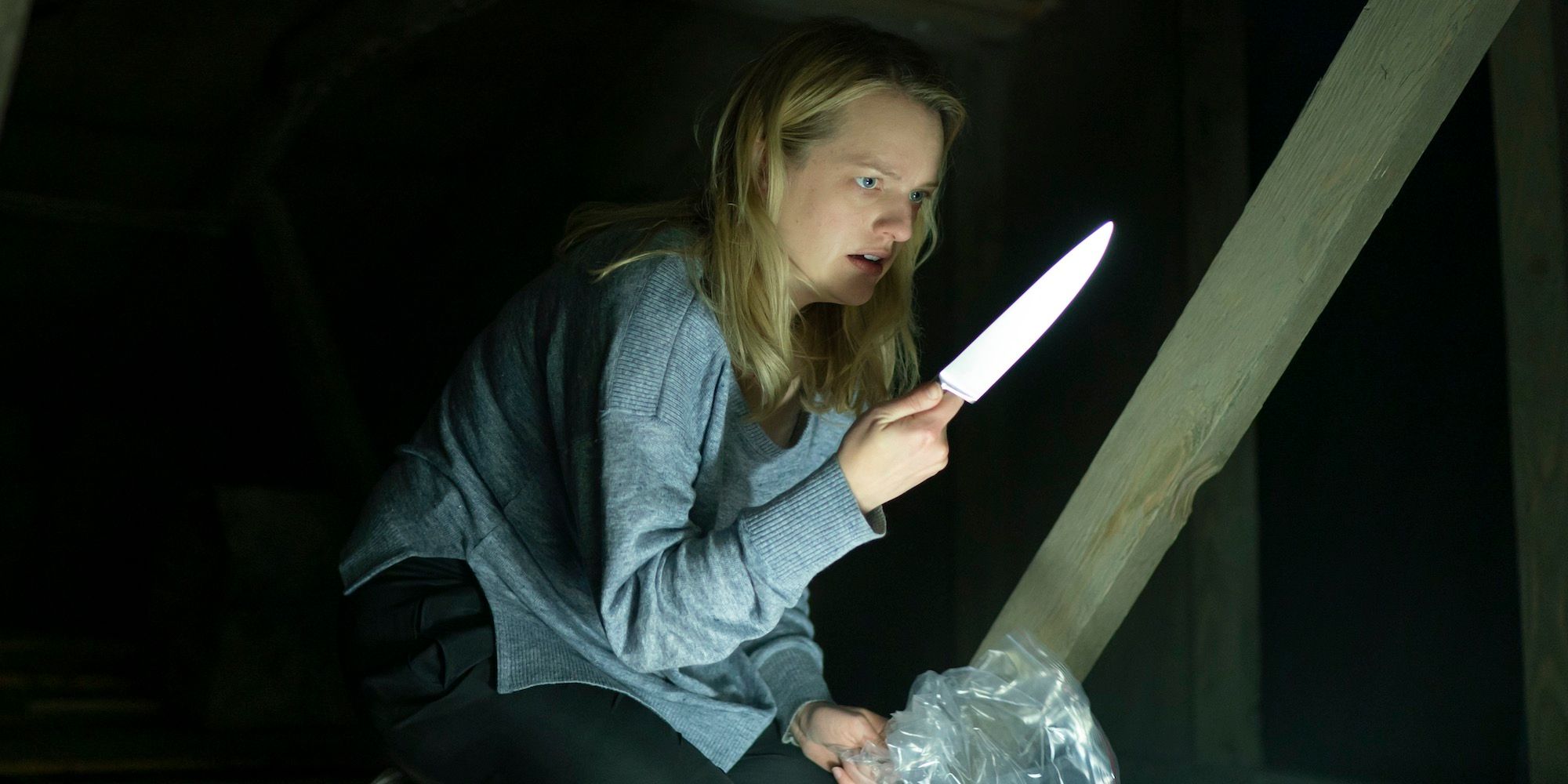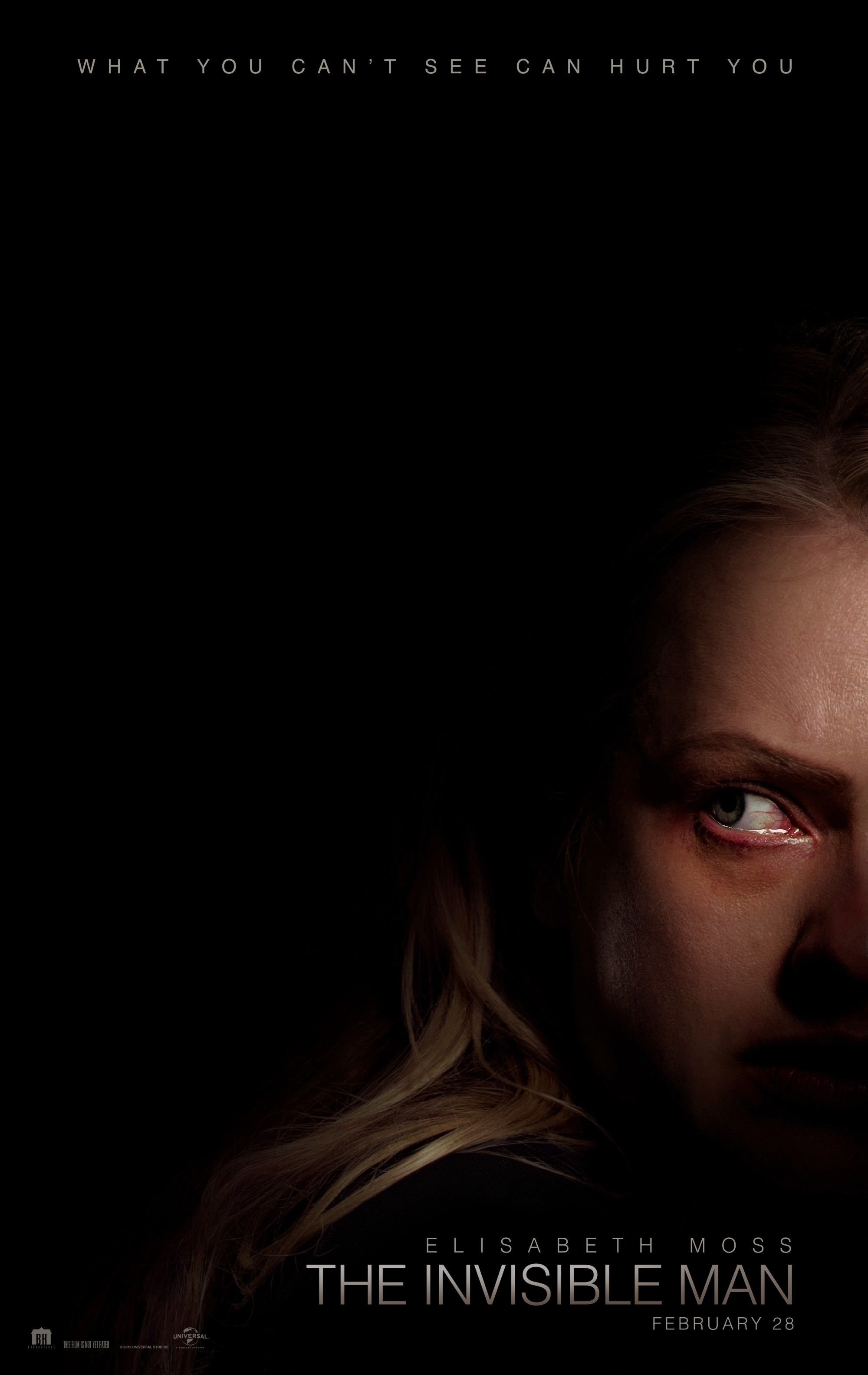The Invisible Man takes the origin of H.G. Wells' famed monster myth and hands the reigns of the narrative over to his victim. The upcoming adaptation from Universal and Blumhouse production, out in theaters on February 28, follows a woman named Cecilia (Elisabeth Moss) who is being stalked by her supposedly dead ex.
In order to craft the suspenseful tale, director and screenwriter Leigh Whannell sat down with his lead actress to get her perspective on violence against women in real life. Moss is no stranger to stories of either horror or dystopia, having previously cut her teeth on the likes of Us and The Handmaid's Tale. And if the trailers are anything to go by, this latest thriller rests heavily on her capable shoulders.
Recently, she chatted with Screen Rant about the importance of The Invisible Man's collaborative process and why she finds cerebral horror films so fascinating.
Congratulations on The Invisible Man; you gave a fabulous performance. Leigh, when I spoke to him, credited you with giving him a lot of perspective on the film. Was it like for you having to embody a character that really runs the gamut from total victimhood to really taking control of her life?
Elisabeth Moss: Yeah, he was really smart about understanding that he had written this incredible script that we all want to do, and he already had this female character that was really interesting and fleshed out and layered. But he also, of course, was the first person to say, "I'm not a woman. What do you have? What is your perspective? What is your point of view here? What can you bring to this?" And allowed me to do that - allowed me, you know what I mean.
Rightly so, he asked for my opinion. And we would sit, and we would write, and we would spitball ideas. I would talk about my experiences, and he would talk about his, and we really crafted some of the more emotionally kind of fraught material.
On the physical side of things, you have a stunt double and also have to work with an invisible man. What is it like having to craft those scenes and share the space with someone that's not there in a way?
Elisabeth Moss: Well, we practiced the big fight scene and we shot it at the end of the film. We put it at the end of the schedule, so that we had all of that time to practice it, and it very specifically worked out. There's a motion control camera that we were using, and it's very, very specific.
The camera is going to go where it wants to go; where it's been programmed to go. It's not following you, you're following it. So, it was a very specifically done. I worked with the stunt doubles a lot, Ollie's stunt double, and then I had a fantastic stunt double who did the middle part where she gets thrown over the table. Her name is Sarah [Laidler], and she's amazing. And then I did the rest of it; the other two parts. We practiced it so much that, by the time we got there, we were ready to go.
You also were in Us last year, another fabulous horror film. They're both very cerebral, social message-type of horror. Is that your favorite kind? What are your horror inspirations?
Elisabeth Moss: I think it's everyone's favorite kind, right? I mean, I feel like that's why it kind of came back and became so popular. That's what sort of they were doing in the 70s and 80s, with The Shining and with Poltergeist and The Exorcist. They all have these deeper themes going on that you have to unpack.
And then recently, what's happened with Jordan Peel's work, and a few others. This is what the audience wants. The audience is pretty smart, and they want to be entertained, but they also want to think. And they don't want to be talked down to. So, I think that's why these films have kind of come back now.



